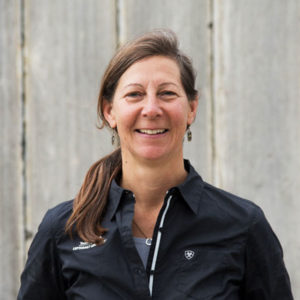On September 14th, seventy climate-smart agriculture and forestry pilot projects received $2.8 billion in funding through the U.S. Department of Agriculture’s Partnerships for Climate-Smart Commodities program
Celebrating Climate-Smart Investments on our Journey to a Regenerative Food System

11/02/2022
By: Wendy Millet
 On September 14th, seventy climate-smart agriculture and forestry pilot projects received $2.8 billion in funding through the U.S. Department of Agriculture’s Partnerships for Climate-Smart Commodities program, intended to accelerate the adoption of climate-smart practices that sequester carbon and improve soil fertility and water holding capacity.
On September 14th, seventy climate-smart agriculture and forestry pilot projects received $2.8 billion in funding through the U.S. Department of Agriculture’s Partnerships for Climate-Smart Commodities program, intended to accelerate the adoption of climate-smart practices that sequester carbon and improve soil fertility and water holding capacity.
This program is one of the largest government investments in climate-smart agriculture to date and the implications are far-reaching. According to the USDA’s estimate, between 20-25 million acres of working lands, and as many as 50,000 farms, could be impacted through the program.
This USDA grant program is a positive signal that the interconnection of climate and agriculture —and the potential for agriculture to become a climate solution—is gaining recognition.
The Need for Holistic, Systems-Thinking
While climate-smart and regenerative agriculture are similar in practices used, regenerative agriculture is a principles-based, context-appropriate, holistic approach to managing complex ecological, economic, and social systems using tools and practices to move systems toward greater health and resilience. Both approaches can lead to similar beneficial outcomes, such as increased carbon sequestration and water infiltration with the presence of living roots and growing plants, but adding a cover crop to a large monoculture farm may not consider the systems-impact of having a monoculture in the first place.
Celebrating Positive Steps
We want to celebrate the many partners, collaborators, friends, and fellow advocates who were listed as grant recipients on the USDA’s webpage. Many grants went to partners who are thinking regeneratively—deeply rooted in holism, and committed to practices that achieve benefits not just in carbon but for water, soil, biodiversity, human health, and communities.
A Special Shout Out
A special shout out to two partners who have spent countless hours at TomKat Ranch collecting soil samples and helping us develop a deeper understanding of the ways healthy soil can improve nutrient, water, and energy cycles on the ranch and beyond.
Point Blue Conservation Science
Point Blue is part of a collaborative grant led by OpenTEAM (a program of Wolfe’s Neck Center) to launch and support climate-smart agricultural pilot projects on farms and ranches in the Northeast, Mountain West, and California. The project will provide land stewards, farmers, and ranchers with soil health planning as well as technical assistance to access financing for implementing practices such as cover cropping, managed grazing, or no-till planting.
As part of this project, Point Blue will deploy the Range-C Monitoring Framework (and forthcoming Crop-C Monitoring Framework)—which offers support for tracking and communicating changes in carbon with management—on 1000 Healthy Soils Implementation Projects nationally (see the 2021 scoping paper for Range-C here). Point Blue will also work with partners at Maple Hill Creamery on a separately awarded grant to monitor carbon using the Range-C on farms in Maple Hill Creamery’s grass-fed milk shed, all in service of helping to catalyze the transition toward a climate-smart economy. Read more about these projects here.
Contact: Chelsea Carey, pointblue.org, ccarey@pointblue.org
The Soil Inventory Project
The Soil Inventory Project (TSIP) was selected to lead a grant to enable hundreds of US farmers to implement or enhance climate-smart farming practices across 120,000 acres. TSIP and its project partners will use grant funding to pay farmers to adopt new land management practices, measure and monitor soil carbon sequestration, and model long-term impacts on crop yields and other climate benefits. Farmers will receive technical assistance throughout the 5-year grant period and impact metrics to help make climate-smart brand claims to market buyers. Press release
Contact: Sonali Lamba, tsip.org, sonali@tsip.org
Congratulations to the growing network of changemakers listed as grantees! (See list below and apologies to any that we failed to spot of the many grants awarded!).
Akiptan
American Farmland Trust
American Grassfed Association
California Association of Resource Conservation Districts
CA Farm Demonstration Network
CA Resource Conservation District
Carbon Cycle Institute
California Certified Organic Farmers
Center for Good Food Purchasing
Conservation Fund
Country National Beef
Ecotrust
Fibershed
Field to Market
Funders for Regenerative Agriculture (FORA)
Glynwood Farms
Grassfed Alliance
Grassfed Exchange
Intertribal Ag Council
Jackson Family Vineyards
James Beard Foundation
MadAgriculture
Maine Soil Health Network
Maple Hill Creamery
Marin Resource Conservation District
Meridian Institute
National Young Farmers Coalition
Northeast Organic Farming Association of Vermont
OpenTEAM
Oregon Tilth
Other Half Processing
Pasa Sustainable Agriculture
Potlikker Capital
Practical Farmers of Iowa
Propagate Ventures
Quivira Coalition
Regenerative Rising
Rodale Institute
Roots of Change
SAGE Center
Soil Health Academy
Soil Health Institute
Sustainable Northwest
Tanka Fund
The Nature Conservancy
The Soil Inventory Project
University of California Cooperative Extension
Understanding Ag
Wolfe’s Neck Farm
Zero Foodprint